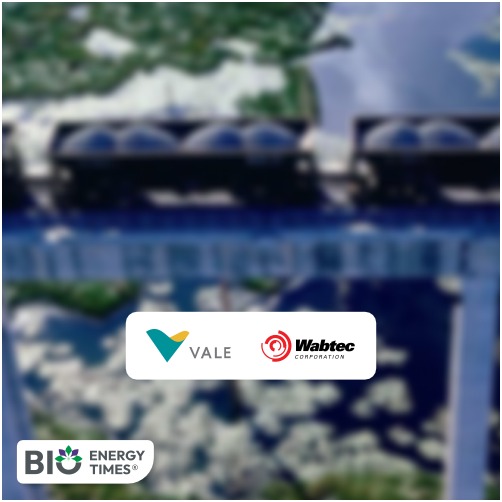Vale and Wabtec Corporation announced a partnership on Monday, October 13, to explore the development of a dual-fuel engine capable of running on both diesel and a mixture of diesel and ethanol. The initial phase of research will take place in a laboratory setting, focusing on validating the engine’s concept, assessing its performance, and evaluating its potential for reducing emissions and substituting ethanol for diesel. These studies and tests are slated to continue through 2027, with the goal of assessing its application for the Vitória-Minas Railway (EFVM) fleet in Southeastern Brazil.
This collaboration is part of a broader series of initiatives with Wabtec aimed at advancing Vale’s railway decarbonization efforts. In March, the two companies had already announced a deal for Vale to purchase 50 locomotives equipped with Evolution Series engines, which are designed to run with up to 25% biodiesel mixed with diesel. In the years ahead, Vale and Wabtec will conduct additional tests to explore the possibility of increasing that biodiesel ratio.
“Innovative projects like these, focused on incorporating alternative fuels into our locomotives, are key to Vale’s commitment to accelerating the decarbonization of our rail network,” said Carlos Medeiros, Executive Vice President of Operations at Vale. “In 2024, Vale’s rail network accounted for 14% of the company’s carbon emissions.”
Danilo Miyasato, President and Regional Leader of Wabtec LATAM, added, “For the first time, Wabtec will use ethanol as a fuel source in a locomotive, marking a milestone for the global rail industry. We are committed to creating technological solutions that drive the transition toward more efficient and sustainable transportation.”
Vale’s decarbonization strategy aligns with its broader sustainability goals. In 2020, the company set a target to reduce its absolute emissions (scopes 1 and 2) by 33% by 2030. This initiative represents another step toward its long-term goal of achieving net-zero carbon emissions by 2050, in line with the Paris Agreement’s commitment to limiting global warming to well below 2°C by the end of the century. Additionally, Vale aims to reduce net emissions from its value chain (scope 3) by 15% by 2035.















